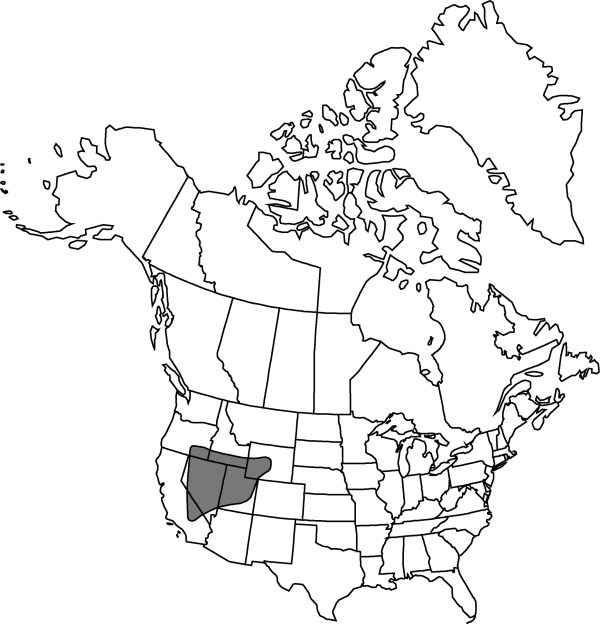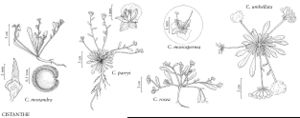Cistanthe rosea
Phytologia 68: 268. 1990.
IllustratedEndemic
Basionym: Calyptridium roseum S. Watson Botany (Fortieth Parallel), 44, plate 6, figs. 6–8. 1871
Revision as of 23:21, 27 May 2020 by imported>Volume Importer
Plants annual, taprooted or roots fibrous. Stems 2 or more from each rosette, spreading to ascending, 1.5–10 cm. Leaves basal and cauline; basal in single, prostrate rosette; blade spatulate, 0.5–4(–5) cm. Inflorescences racemose or paniculate scorpioid clusters, open. Flowers pedicellate; sepals orbiculate, unequal, 2–3 mm, margins scarious; petals 2, white, 1 mm or less; stamen 1, opposite proximal sepal, anther yellow; style absent; stigmas 2; pedicel 1–3 mm. Capsules ovoid, 2–3 mm; valves 2. Seeds 5–11, black, orbicular, 0.5 mm, shiny. 2n = 44.
Phenology: Flowering May–Aug.
Habitat: Gravelly soils
Elevation: 1500-3800 m
Distribution

Calif., Idaho, Nev., Oreg., Utah, Wyo.
Discussion
Selected References
None.
Lower Taxa
None.
